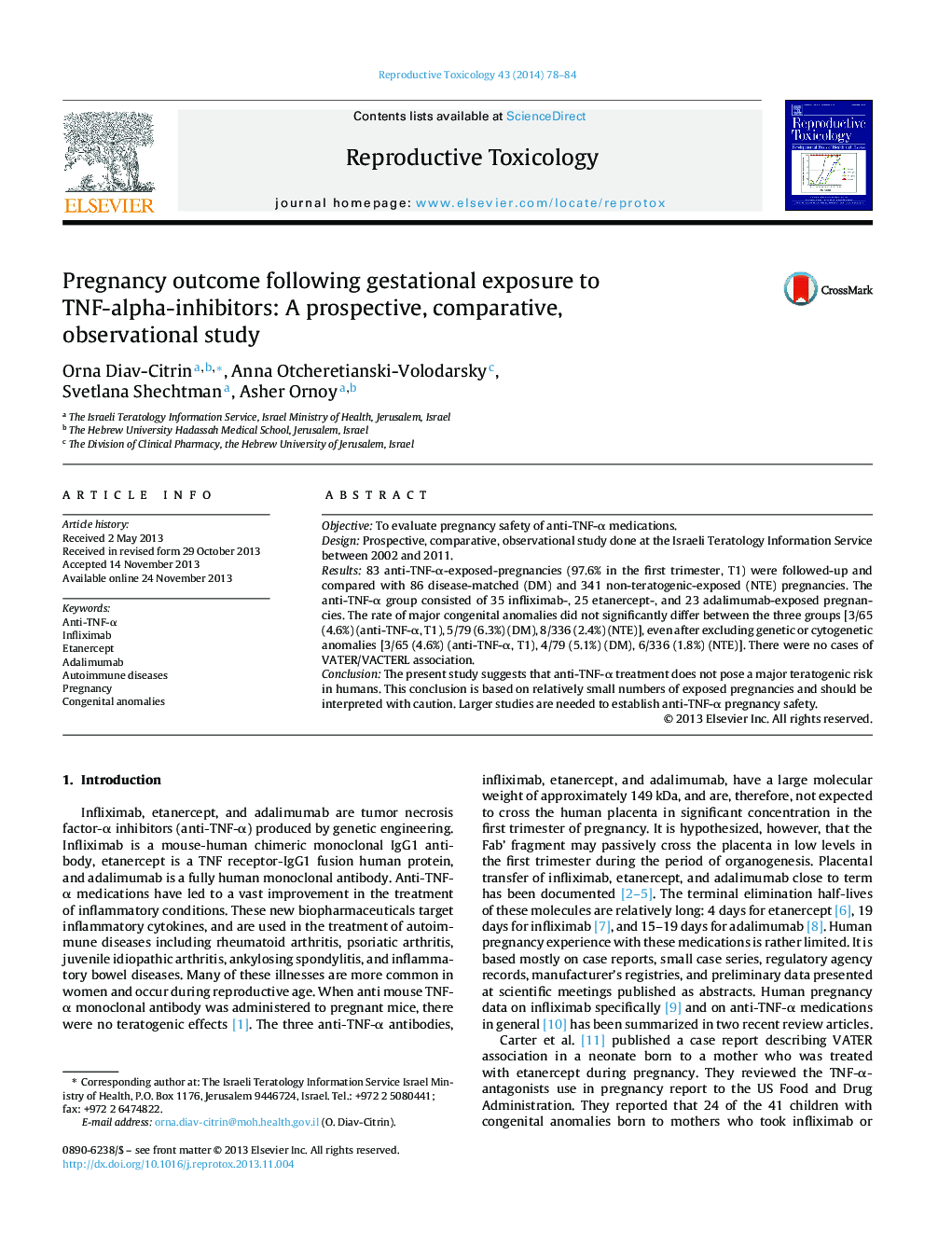| کد مقاله | کد نشریه | سال انتشار | مقاله انگلیسی | نسخه تمام متن |
|---|---|---|---|---|
| 2593560 | 1562176 | 2014 | 7 صفحه PDF | دانلود رایگان |

• Pregnancy use of anti-TNF-α medications was not associated with a teratogenic risk in 65 live-born infants.
• There were no cases of VATER/VACTERL association.
ObjectiveTo evaluate pregnancy safety of anti-TNF-α medications.DesignProspective, comparative, observational study done at the Israeli Teratology Information Service between 2002 and 2011.Results83 anti-TNF-α-exposed-pregnancies (97.6% in the first trimester, T1) were followed-up and compared with 86 disease-matched (DM) and 341 non-teratogenic-exposed (NTE) pregnancies. The anti-TNF-α group consisted of 35 infliximab-, 25 etanercept-, and 23 adalimumab-exposed pregnancies. The rate of major congenital anomalies did not significantly differ between the three groups [3/65 (4.6%) (anti-TNF-α, T1), 5/79 (6.3%) (DM), 8/336 (2.4%) (NTE)], even after excluding genetic or cytogenetic anomalies [3/65 (4.6%) (anti-TNF-α, T1), 4/79 (5.1%) (DM), 6/336 (1.8%) (NTE)]. There were no cases of VATER/VACTERL association.ConclusionThe present study suggests that anti-TNF-α treatment does not pose a major teratogenic risk in humans. This conclusion is based on relatively small numbers of exposed pregnancies and should be interpreted with caution. Larger studies are needed to establish anti-TNF-α pregnancy safety.
Journal: Reproductive Toxicology - Volume 43, January 2014, Pages 78–84